Sustainability
The University of Tennessee System Administration recommends that all UT departments consider environmental sustainability when making purchases. Below, Procurement Services provides some helpful information related to environmentally sustainable procurement. The guide does not answer every environmental question, nor address possible social aspects of where and under what conditions products are produced, nor any other related production concerns.
DocuSign and digital processes
The UT System Administration Procurement Services office led the effort to implement DocuSign for UT’s various procurement and contract offices. The office manages UT’s DocuSign account, and this digitization initiative has had a significant, positive impact on environmental sustainability. As of January 2022, DocuSign estimates that UT’s utilization of DocuSign has yielded the following results:
- Saved 45,697 pounds of wood
- Saved 134,552 gallons of water
- Prevented 107,261 pounds of carbon emissions
- Prevented 7,426 pounds of waste
This initiative saves substantial “soft costs” in terms of staff time, faster contract signature times, etc. DocuSign has also saved hard costs due to the fact that 95% or more of UT’s 6,000+ contracts per year are processed 100% electronically (thus, UT no longer has to print physical contracts, mail the contracts for signature, etc.). 6,000 contracts would average out to about 60,000-80,000 printed pages.
UT System’s contract-review function has been fully digital since 2013. UT System’s office of Procurement Services has been fully digital since 2016. These digitization efforts have yielded substantial hard and soft cost savings, in addition to the environmental benefits of being fully digital.
The University of Tennessee’s purchasing preferences
In an effort to help conserve resources and improve working conditions, UT prefers the purchase or rental of more sustainable options to the greatest extent possible. The UT System Procurement office encourages the University’s departments to choose products and services that have a reduced impact on human health and the environment, when compared to similar products that serve the same purpose.
UT Procurement Services recommends that employees make every effort to prevent waste by reusing materials, whenever possible. When you purchase new items, please prioritize materials that are durable, energy efficient, water efficient, made from recycled materials, and are reusable, recyclable, or composable.
When you evaluate products to determine whether your office wants to purchase the products, please consider the product’s environmental attributes. Some of the benefits to choosing environmentally sustainable products are:
- Reduce the use of hazardous products, which improves workers safety.
- Environmentally sustainable products usually have lower disposal costs, which reduces the overall “total cost of ownership.”
- Energy efficient products save natural and financial resources.
- Sustainable purchasing helps promote a healthier environment.
Some considerations/attributes that you might want to consider when evaluating different products:
- Is the product less hazardous?
- Will it reduce workplace injuries?
- Does it produce less waste?
- Are there harmful by-products from the product?
- Is it reusable or more durable?
- Is it made from recycled materials?
- If so what amount of recycled materials are used?
- Does it conserve energy or water?
- Is it made from plant-based raw materials?
- Is there a third-party certification of environmental attributes? (See below for more information about third-party certifications)
- What happens at the product’s end of life?
- Can it be recycled?
- Will the manufacturer take it back?
- Does it require special disposal?
Cleaning products
UT prefers the purchase of general cleaning products and janitorial paper products that meet criteria for one or more of the following certification programs: Green Seal, UL ECOLOGO, US EPA Safer Choice, and/or Forest Stewardship Council.
Electronics
UT prefers the purchase of electronics products that meet EPEAT Gold or EPEAT Silver standards. Products eligible to earn EPEAT certification include: desktop computers, notebook/laptop computers, displays, tablets, TVs, and imaging equipment.
Paper
UT encourages the purchase of post-consumer waste recycled content copier paper.
Sustainable Product Searching in Marketplace
Click here to see information about how to search various catalogs in the UT Marketplace to find environmentally sustainable products.
Sustainable Procurement Best Practices
Do you need it?
- Ensure that a need exists; consider reusing existing items and university surplus.
Life Cycle
- Seek durable products that can be recharged, repaired, refilled, upgraded, or reused.
- Prioritize water and energy-conserving appliances and equipment. See below for information on sustainability certifications.
- Purchase products made from recycled or repurposed materials and that can be recycled or repurposed after use.
Delivery and Packaging
- Use contracted suppliers and/or consolidate orders to reduce packaging and deliveries.
- Provide feedback to suppliers regarding packaging materials and practices, and request alternatives such as take-back programs and reusable and/or recyclable packaging.
- Consolidate orders, when possible.
Disposal
- Assess disposal requirements of each product and prioritize items that can be reused, recycled, or composted.
- Seek products with minimal packaging.
Hazards
- Avoid products containing particularly harmful substances whenever possible.
- Seek alternatives to products and processes that may be detrimental to the environment and the community.
Sourcing
- Consider materials and products harvested, extracted, or manufactured within Tennessee.
- Prioritize vendors that are small, veteran-owned, women-owned, and/or minority-owned businesses. Contact Karen Binkley (kbinkley@tennessee.edu) for more information.
- Consider the vendor’s sustainability, environmental, and corporate social responsibility practices.
Common certifications
When you purchase products, please look for relevant environmental certifications. A comprehensive list of environmental certifications is available on the U.S. EPA’s website.
Below, we have provided a list of some common and credible certifications.
| Name of certification | Certifying agency | Description | Goods/Services covered | Logo | Webpage |
|---|---|---|---|---|---|
| B Corporation | B Lab | Being a certified B Corporation means that the business met B Labs' standards for environmental and social responsibility. | B Corporation certifications are based on the business, not the specific goods or services offered. Only available to for-profit businesses. |  | Click here |
| Cradle to Cradle | Cradle to Cradle Institute | Certifies products based on performance in material health; material reuse; carbon footprint; water management; & social fairness. | Any manufactured product. | 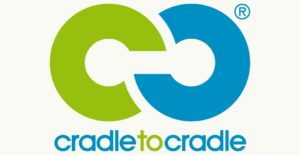 | Click here |
| CRI Green Seal and Green Seal Plus | The Carpet and Rug Institute | Identifies products with very low emissions of Volatile Organic Compounds (VOCs). | Carpet, cushions and adhesives | 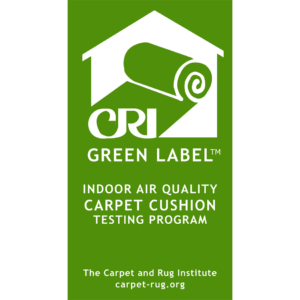 | Click here |
| Energy Star | U.S. Environmental Protection Agency | Identifies products, including light bulbs, electronics, and other items, that meet certain energy-consumption standards. | More than 75 product categories, homes, commercial buildings, and industrial plants. | 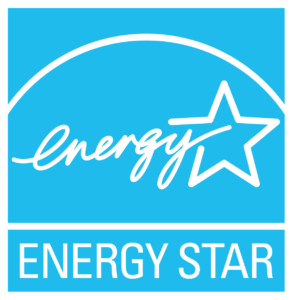 | Click here |
| EPEAT | Green Electronics Council | EPEAT is a global ecolabel for the information-technology sector. | Computers and displays (monitors); imaging equipment; mobile phones; photovoltaic modules and inverters; televisions; and servers. | 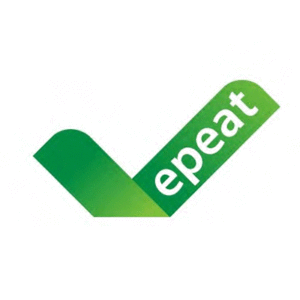 | Click here |
| Green Seal | Green Seal | Certifies products & services to help manufacturers, purchasers, & consumers make environmentally-responsible choices. | Building Equipment & Construction Materials; Cleaning Products & Services; Food Packaging & Paper; Hotels & Lodging; Household Cleaning Products; Industrial & Institutional Cleaning Products; Paint & Coating Products; Printing and Writing Paper; Sanitary Paper Products; Restaurant & Food Services | 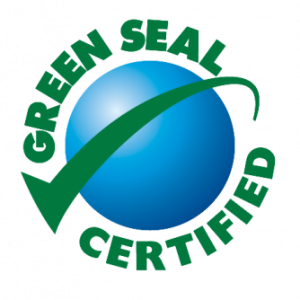 | Click here |
| Greenguard | Greenguard Environmental Institute | Greenguard aims to protect human health and improve quality of life by improving indoor-air quality and reducing people's exposure to chemicals and pollutants. | Furniture, flooring, textiles, window treatments, paints/stains, sealants, surface finishes, & other building/construction products | 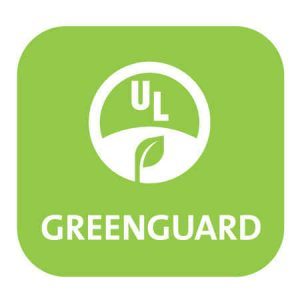 | Click here |
| Rainforest Alliance | Rainforest Alliance | Fair Trade Logo Recognizes products from farms, forests, & businesses that meet rigorous environmental & social standards. | Building materials, flowers/plants, food/beverages, furniture, health/beauty, home/kitchen, instruments, office supplies, printing, & sporting goods | 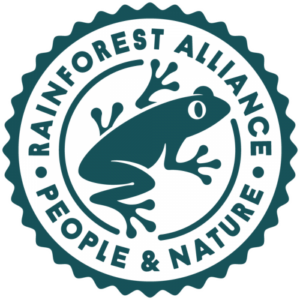 | Click here |
| UL Ecologo | UL, LLC (formerly known as Underwriters Laboratories) | Multi-attribute certification to ensure the products, service, or packaging reduces negative environmental impacts. | Cleaning products/services, papers, office supplies, electronics, building materials, personal care products, paints/sealants, & electricity | 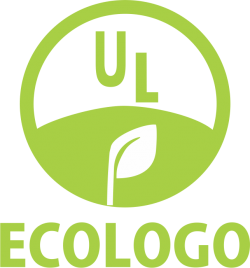 | Click here |
| US EPA Safer Choice | U.S. Environmental Protection Agency | Safer Choice Logo Helps consumers, businesses, & purchasers identify products that perform well & are safer for human health & the environment. | Cleaning & sanitation products. | 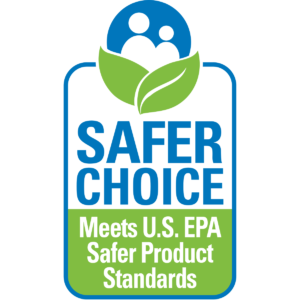 | Click here |
| WaterSense | U.S. Environmental Protection Agency | Helps consumers find verified water-saving products. | Showerheads, faucets, toilets, urinals, spray-values, & irrigation controls | Click here | Click here |
